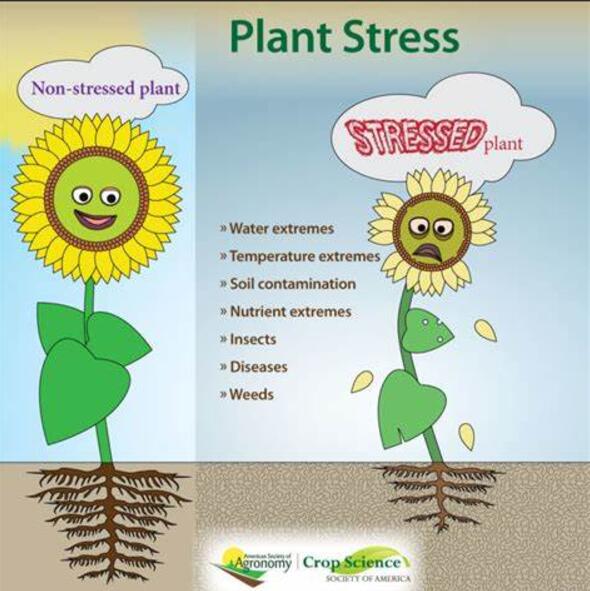耐旱植物生长促进根瘤菌可缓解干旱胁迫,增强土壤健康,促进可持续农业发展:全面综述
IF 6.8
Q1 PLANT SCIENCES
引用次数: 0
摘要
气候变化加剧了非生物胁迫(主要是干旱)对植物生产的影响。为提高耐旱性而进行的植物筛选、育种和基因工程耗资巨大且耗时较长。为了减轻干旱胁迫,植物会采用适应机制,并与有益微生物(如植物生长促进根瘤菌)相互作用。将各种 PGPR 菌种接种到植物根部可通过细胞、生理和生化机制网络促进耐旱性,包括增强根的伸长、增加植物激素的产生和挥发性有机化合物的合成。PGPR 定殖是一种环境可持续农业技术,可通过提高对环境挑战的耐受性来促进植物的生长、发育和产量。本综述概述了干旱胁迫对植物生长和发育的影响,详细介绍了 PGPR 如何诱导生理、形态和分子反应以减轻干旱胁迫。本文章由计算机程序翻译,如有差异,请以英文原文为准。
Drought-tolerant plant growth-promoting rhizobacteria alleviate drought stress and enhance soil health for sustainable agriculture: A comprehensive review
Climate change has exacerbated the impact of abiotic stresses, mainly drought, on plant production. Plant selection, breeding, and genetic engineering to increase drought tolerance are costly and time-consuming. To mitigate drought stress, plants employ adaptive mechanisms and interact with beneficial microorganisms, such as plant growth-promoting rhizobacteria (PGPR). Inoculating plant roots with various PGPR species promotes drought tolerance through a network of cellular, physiological, and biochemical mechanisms, including enhanced root elongation, increased phytohormone production, and synthesis of volatile organic compounds. PGPR colonization represents an environmentally sustainable agricultural technique that enhances plant growth, development, and yield by facilitating improved tolerance to environmental challenges. The current review provides an overview of the impact of drought stress on plant growth and development, detailing how PGPR induce physiological, morphological, and molecular responses to mitigate drought stress.
求助全文
通过发布文献求助,成功后即可免费获取论文全文。
去求助
来源期刊

Plant Stress
PLANT SCIENCES-
CiteScore
5.20
自引率
8.00%
发文量
76
审稿时长
63 days
期刊介绍:
The journal Plant Stress deals with plant (or other photoautotrophs, such as algae, cyanobacteria and lichens) responses to abiotic and biotic stress factors that can result in limited growth and productivity. Such responses can be analyzed and described at a physiological, biochemical and molecular level. Experimental approaches/technologies aiming to improve growth and productivity with a potential for downstream validation under stress conditions will also be considered. Both fundamental and applied research manuscripts are welcome, provided that clear mechanistic hypotheses are made and descriptive approaches are avoided. In addition, high-quality review articles will also be considered, provided they follow a critical approach and stimulate thought for future research avenues.
Plant Stress welcomes high-quality manuscripts related (but not limited) to interactions between plants and:
Lack of water (drought) and excess (flooding),
Salinity stress,
Elevated temperature and/or low temperature (chilling and freezing),
Hypoxia and/or anoxia,
Mineral nutrient excess and/or deficiency,
Heavy metals and/or metalloids,
Plant priming (chemical, biological, physiological, nanomaterial, biostimulant) approaches for improved stress protection,
Viral, phytoplasma, bacterial and fungal plant-pathogen interactions.
The journal welcomes basic and applied research articles, as well as review articles and short communications. All submitted manuscripts will be subject to a thorough peer-reviewing process.
 求助内容:
求助内容: 应助结果提醒方式:
应助结果提醒方式:


